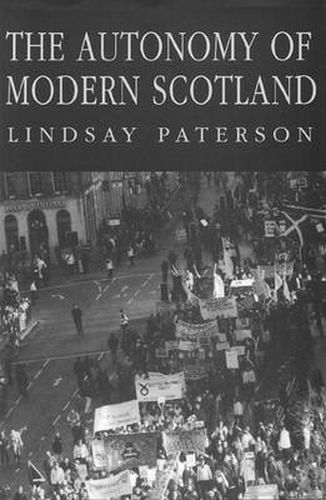Readings Newsletter
Become a Readings Member to make your shopping experience even easier.
Sign in or sign up for free!
You’re not far away from qualifying for FREE standard shipping within Australia
You’ve qualified for FREE standard shipping within Australia
The cart is loading…






This book challenges the assumption that nationalism can only be reflected in seperate institutions of government - such as Scottish parliament. Instead, it argues that nationalist sentiment can be a powerful political force for change without necessarily achieving formal sovereignty. Examining the different forms of federalism and nationalism in large and small countries around the world, Lindsay Paterson concludes that in Scotland as well as in Catalan, Quebec, the United States, Germany and central Europe, national autonomy takes many subtle and different forms, but can still be effective. He analyzes the development of nationalism in Scotland, explaining the political institutions of the country for a non-Scottish audience, and shows how 20th-century nationalism has been successful in setting up many Scottish institutions, despite failing to achieve formal sovereignty through devolution. He compares the situation in Catalan and relates the Scottish experience to the future of English and European nationalism in the growth of the new European Union. This work is intended for undergraduate students of government, politics, society and the comparative study of nationalism; and general readers interested in Scottish politics.
$9.00 standard shipping within Australia
FREE standard shipping within Australia for orders over $100.00
Express & International shipping calculated at checkout
This book challenges the assumption that nationalism can only be reflected in seperate institutions of government - such as Scottish parliament. Instead, it argues that nationalist sentiment can be a powerful political force for change without necessarily achieving formal sovereignty. Examining the different forms of federalism and nationalism in large and small countries around the world, Lindsay Paterson concludes that in Scotland as well as in Catalan, Quebec, the United States, Germany and central Europe, national autonomy takes many subtle and different forms, but can still be effective. He analyzes the development of nationalism in Scotland, explaining the political institutions of the country for a non-Scottish audience, and shows how 20th-century nationalism has been successful in setting up many Scottish institutions, despite failing to achieve formal sovereignty through devolution. He compares the situation in Catalan and relates the Scottish experience to the future of English and European nationalism in the growth of the new European Union. This work is intended for undergraduate students of government, politics, society and the comparative study of nationalism; and general readers interested in Scottish politics.